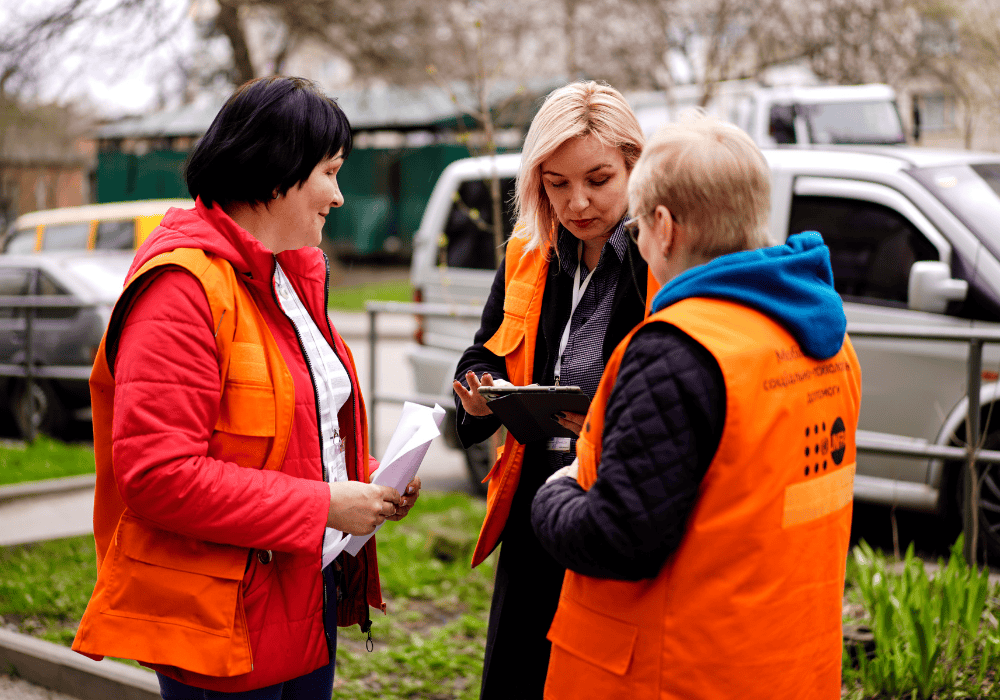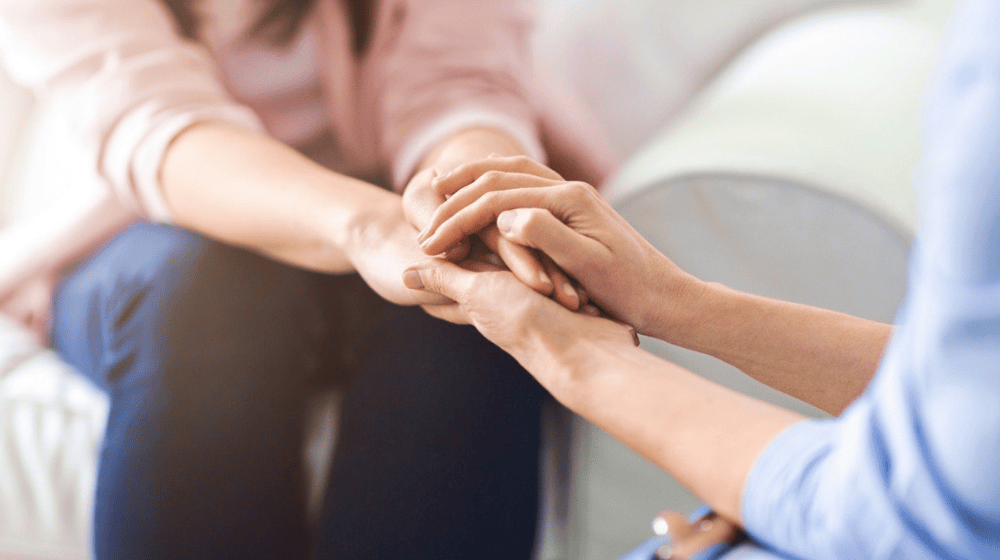KYIV, Ukraine —"Where should we go, who can we turn to get at least some support, to receive any kind of help?"
Iryna* (name changed for safety), 60, had been struggling since she was forced to leave her home in the Donetsk region. Her displacement intensified the mental stress of the ongoing war as she was torn away from the life and community she had built. When she arrived in the Kyiv region, she found it difficult to find new employment or resources for support. Iryna became almost entirely dependent on her husband, who had a job and access to his pension. He restricted her finances and gave her only 100 Ukrainian hryvnia (equal to US$3.00) per week for food.
Iryna grew up in an environment where it was considered normal for a woman never to question her husband’s decisions since he was the so-called provider of the family. Iryna’s husband was also tall and handsome, which increased the social pressure on her to stay silent and defer to him. Even her friends would ask, “Who are you to stand up to him?”
Older women like Iryna have faced overlapping challenges during the war. Ukraine has the highest proportion of older individuals affected by conflict globally—with over 2.5 million older adults requiring assistance. Women make up the majority of this population, and displacement, financial dependency and isolation have increased their risk of gender-based violence (GBV). Many older women face abuse within their homes as traditional support systems break down under the pressures of war. Nearly 88 per cent of households with an older adult report severe or extreme needs, with health and financial security being the most critical issues.
“The war has only amplified long-standing gender inequalities,” explained Olena Shevchenko. She is a psychologist with one of UNFPA’s mobile psychosocial support teams. There are 106 mobile units that help deliver services to vulnerable women like Iryna. “Older women who might have quietly endured abuse in peacetime are now at even greater risk, especially in overcrowded shelters or unstable housing.”
Communal housing sites sponsored by aid groups or local authorities currently host over 111,500 internally displaced people. But they often lack adequate privacy and security, further exposing vulnerable people to risks like GBV and exploitation. In these settings, older women frequently lack access to the resources they need to escape abusive situations. “Displacement has stripped them of their networks,” Ms. Shevchenko added. “Without targeted support, they have nowhere to turn.”
The war in Ukraine underscores the urgent need for GBV prevention and support services that include older women. Addressing these issues requires funding, safe shelters and tailored interventions that consider the unique challenges that older survivors face.
For Iryna, her life began to turn around when she met the UNFPA mobile team. They were handing out dignity kits, which provided warm clothing and winter supplies that Iryna had left behind when she fled her home. The mobile team also offered Iryna psychological counselling and later referred her to the UNFPA-supported women-friendly spaces known as “Vilna” Centres and “VONA” Hubs, where she could access more social assistance services and enrol in job training courses.

Ms. Shevchenko, the psychologist, accompanied Iryna on her first visit to the Vilna Centre to ensure she felt comfortable. Iryna quickly felt at ease as she discovered a wide range of activities, including drawing, aerobics, language classes, support groups and psychological sessions. She connected with other women there, sharing experiences and supporting one another through shared challenges. The Centre also helped Iryna with the complicated process of claiming her pension as an internally displaced person. She generated some additional income by conducting makeup workshops and providing cosmetic consultations for other women at the Centre.
Once in a vulnerable and desperate state, Iryna rediscovered her confidence and strength – and made the decision to separate from her husband. But seeing Iryna stand up for herself made her husband reconsider his own behaviour toward her. He made changes to improve their relationship and bring their lives back together, showing her newfound respect and appreciation and helping her care for her sick mother.
Iryna now works at a Vilna Centre, helping other women access resources like GBV response services, psychosocial counselling and skills training. Her transformation showcases the value of consistent support and her own determination to rebuild her life.
Iryna’s story offers hope, but it also highlights the vast unmet needs of Ukraine’s older population. As the war continues, UNFPA is committed to making the safety and dignity of older women a priority.


